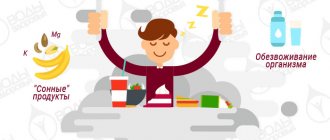Causes of nausea from meat
Due to the content of muscle fibers and fat, meat is a product that requires additional digestive effort from the body. Nausea from meat itself is not a disease, but only a signal of certain changes in the body - organic or psychological.
The human central nervous system (CNS) is the main coordinator of all organic processes in our body. Its disorders arise under the influence of various pathogenic agents that affect the quality and speed of transmission of nerve impulses (the action of the so-called reflex arc), on which the perception of food also depends.
Infections, both acute and chronic, are significant causes of a broad category of nervous disorders. The viruses that cause them are called neurotropic. Against the background of infectious intoxications, lesions of the nerve branches and (or) the brain tissue itself occur. In both cases, reflex processes associated with the affected areas are affected. Epidemic meningitis, encephalitis and myelitis (inflammation of the spinal cord) are especially dangerous in this regard. Disturbances of innervation within the autonomic nervous system, which controls the gastrointestinal tract, lead to complete or partial paralysis of its activity, which is marked by nausea.
Inflammation of brain tissue is characterized by rapid development, accompanied by tissue swelling and loss of a number of functions associated with this area. The consequences of such inflammation are much deeper and more serious than inflammation of other tissues, and constant activation of the vomiting center leads to ongoing nausea of varying intensity.
Note! Infectious intoxication of the brain can cause psychosis.
Gastrointestinal diseases are the most likely cause of meat-associated nausea. Simply put, amylase, a special enzyme secreted into the lumen of the duodenum by the pancreas, is intended to break down meat proteins. But before food enters it, it undergoes complex processing in the stomach. Therefore, inadequate impregnation with gastric secretions radically affects the quality of intestinal digestion, to which meat is mainly subjected. Chronic diseases of the pancreas and the resulting deficiency of amylase in pancreatic juice can cause reflex rejection and nausea from meat products.
The immediate causes of nausea associated with the gastrointestinal tract may include:
- gastritis, especially atrophic and associated with decreased acidity;
- chronic pancreatitis;
- diseases of the biliary tract that prevent adequate outflow of bile;
- Inflammatory bowel diseases that interfere with normal intestinal secretions.
Diseases of the digestive system, in addition to nausea, will certainly make themselves felt with additional symptoms - and above all pain, which is difficult to ignore, and bowel disorders.
The growth of malignant tumors is accompanied by natural changes throughout the body, which are not only its consequences - they themselves play an important role in its further development. The most characteristic phenomenon accompanying malignant cell growth is intoxication, often accompanied by severe anemia. The reason for increasing intoxication is a change in the nature of metabolism in the body.
These changes consist of a weakening of oxidative processes, an increase in fermentation processes, lactic acid accumulates in the tissues, and under-oxidized breakdown products of fats, proteins and carbohydrates, and ketone bodies in the blood. The enzymatic effect of tumor tissue leads to the formation of substances that cause self-poisoning. Such phenomena inevitably have a generalized pathological effect on the central nervous system and, in particular, can cause taste distortions.
Important! The developed aversion to meat is a special case of such perversions, but cannot be considered as a specific, integral symptom of an oncological disease. And rapid weight loss, which quickly causes exhaustion, is not always observed at the initial stage.
An aversion to meat can develop during pregnancy as part of general changes caused by toxicosis. When severe, it can make the life of the expectant mother unbearable. Powerful fluctuations in hormonal levels, provoking the emergence of zones of pathological excitation in the brain, act as one of the irritants of the central nervous system and cause bizarre perversions of taste and changes in taste preferences, which is within normal limits. The occurrence of nausea after eating meat may be due to this.
Aversion to meat as a symptom
Aversion to meat during pregnancy
According to many experts, an aversion to meat during pregnancy is explained by the fact that during this period a woman’s body tries to tell her which products are most necessary for the expectant mother and her baby. This is why nausea can occur at the mere smell of certain foods. Usually during pregnancy there is aversion to the smell of coffee, fried foods, tobacco, some spices, perfumes, fish, onions, garlic and other things. If you experience a symptom such as an aversion to meat or other foods, you should visit a doctor, as this can be caused not only by pregnancy, but also by certain diseases. Such diseases include: gallbladder pathologies, stomach diseases, gout, vertebral displacement, high acidity, etc. If the aversion to meat and other products is caused precisely by pregnancy, then all that remains is to wait until the end of the first trimester, or in more rare cases, the birth of the baby.
Aversion to meat in cancer
Doctors do not identify any specific symptoms of the first stage of cancer. In most cases, the presence of cancer can only be determined by undergoing an examination. However, there are some complaints with which patients turn to specialists that make it possible to suspect cancer of the digestive organs.
Most often, at the initial stage of oncology, the patient does not worry about anything. Symptoms appear and develop slowly, gradually. Most often, patients report an aversion to meat during cancer, and also complain of constant malaise, decreased performance, headaches, weakness, and slightly elevated body temperature. Oncology of the digestive system is usually accompanied by loss of appetite and rapid weight loss. All these symptoms should alert the patient and the doctor and become a reason to undergo a full examination.
High-quality meat products are the main source of protein, without which the full existence of the human body is impossible, no matter what convinced vegetarians say. But sometimes eating meat causes unpleasant symptoms, and sometimes even complete rejection.
https://youtu.be/Jy8EblanYV0
When to see a doctor
Reasons to immediately call a doctor if you experience nausea from meat are:
- nausea that has become obsessive;
- persistent distortion of the smell and taste of food;
- vomiting that has become indomitable, especially with an admixture of blood, mucus, bile or pus;
- confusion, speech, double vision, soreness (or painful sensitivity) in certain areas of the head, especially against the background of an increase in temperature.
Important! Artificially inducing vomiting under these conditions increases the likelihood of dangerous internal bleeding, organ rupture, and hemorrhagic stroke.
Sometimes only painful nausea, regardless of its cause, saves a person’s life, forcing him to seek medical help.
Adviсe
If a person is irritated by the smell of meat, then a decoction of ginger or chamomile can be used to treat it. And also entrust the preparation of such dishes to another person (mother, husband, sister, etc.) and ventilate the apartment more often, especially the kitchen.
To avoid disgust, you need to carefully approach the purchase of meat and check its freshness. Prepare dishes where the flavor of the meat will not be very pronounced. If refusal is not a personal decision, then you need to look for the reason, and preferably not on your own. And start treatment.
If the lack of appetite for meat is accompanied by abdominal pain, fever, vomiting, sudden weight loss and increased sweating, then this is a reason to sound the alarm and go to the hospital.
What to do
If nausea occurs in connection with eating meat, it is necessary to exclude its most likely cause - pregnancy, and also examine the gastrointestinal tract, starting with its upper sections.
https://youtu.be/h9_cAeYfwdE
To dispel the myths inspired by cancerophobia, we note that, contrary to the established stable stereotype, disgust, even nausea, that arises in relation to meat products, in the vast majority of cases is not a direct consequence of a malignant tumor localized in the stomach. Nausea is the result of the pathological course of complex biochemical processes that need to be understood in detail.
Share with friends:
Why does meat make you sick?
Nausea from protein foods occurs in several cases:
- Poisoning.
- Pregnancy.
- Previous illnesses.
- Stomach and gastrointestinal cancer.
- Stress and depression.
Often people feel sick from eating meat during pregnancy. This is not scary and there is no need to treat the problem. This is a kind of manifestation of toxicosis. Pregnant women need to eat what the body asks for.
But you don't need to get carried away with complex carbohydrates. It is necessary to minimize the consumption of sweet and starchy foods.
Depression and other illnesses
These problems cause exhaustion of the body. He lacks strength and energy reserves. Meat is a protein that takes a long time to digest and digest.
In the process of such work, the already exhausted body spends the remaining energy on digestion.
Carbohydrates, in turn, give and fill the human body with vitality.
In this case, the body at a subconscious level refuses to eat food in the form of meat products. A person begins to consume more carbohydrates.
This life period will pass on its own when the energy deficit is replenished. At this moment, you don’t need to burden yourself too much and rest more.
If the body requires carbohydrates, you need to give it to it. But this also needs to be done wisely.
If you uncontrollably consume carbohydrate foods, then along with energy will come excess weight. It is advisable not to give in to your body’s persuasion and not to run for sweets and desserts.
It is advisable to replace such carbohydrates with healthier ones. You can also restore energy by eating fruits, greens, and cereals.
What are proteins needed for?
It should be understood that protein intoxication is not ordinary poisoning. Rather, it is a malfunction of the digestive system that is caused by heavy food in any quantity. There is an increased load on the liver, pancreas and kidneys, which are involved in removing protein breakdown products. Food lingers in the rectum, disrupting the water balance, and the process of fermentation and rotting begins. At this stage, toxins are released, which worsens the patient's condition.
Signs of protein poisoning appear 4–6 hours after eating a dish:
- temperature rise to 37.5°,
- bloating and increased gas formation,
- sharp pain under the ribs,
- feeling of heat or extreme cold,
- gagging,
- intestinal disorder.
If an excess of protein occurs, a person may observe a change in the color of the urine and the appearance of sediment. This is due to the release of calcium and an increase in sugar levels. When the kidneys are intoxicated, swelling of the fingers, face, and lower extremities occurs. In older patients, high levels of urea are diagnosed in the blood, and joint diseases worsen.
Young children have problems digesting large amounts of protein foods much more often. Protein poison affects all organs and systems, so painful consequences arise:
- the smell of acetone from the child's mouth,
- diarrhea,
- severe vomiting
- weakness.
If a side effect occurs on the protein of a mushroom or meat, hives appear on the body in the form of large red spots. There is itching, irritability, a feeling of shortness of breath and lack of air. Such patients feel sick from protein foods, even if the portion weight does not exceed 150–200 grams.
In most cases, protein food poisoning goes away on its own. If the patient has overeaten meat or fish products, it is necessary to rinse the stomach with clean water at home.
After cleansing, you can take activated carbon and drink mineral water.
It is better to refuse to eat, to normalize the functioning of the pancreas with the help of Allochol or Pancreatin.
After your condition improves, you should not eat spicy, fried, or baked goods for 4–5 days.
If a person uses sports nutrition incorrectly or uses nutritional supplements from an unknown manufacturer with high levels of protein for a long time, severe intoxication may occur. It is imperative to seek treatment from a doctor who will recommend what to do in case of protein poisoning.
At home the following is carried out:
- thorough gastric lavage, cleansing enemas,
- detoxification of the body with the help of adsorbents – Enterosgel, Enterol, White Coal,
- taking medications that improve digestion - Mezim, Festal,
- restoration of water balance using Regidron and other saline solutions.
Treatment of protein poisoning when consuming mushrooms is often accompanied by kidney dysfunction. Therefore, if a severe allergy or a poisonous mushroom has been eaten is suspected, a special whey protein is administered in the hospital. It binds protein molecules and protects against further intoxication. Doctors select a diet that helps restore intestinal motility and is rich in light and healthy foods. The same first aid algorithm for seafood poisoning.
Mild protein overdose occurs without consequences. But staying on a diet with a high percentage of protein for a long time can result in serious consequences:
- deterioration of heart function,
- arrhythmia,
- avitaminosis,
- the appearance of stones in the pancreas or kidneys,
- acute renal failure,
- dysbiosis.
If the level of protein in the blood is constantly elevated, the patient experiences irreversible changes in bone tissue due to the accumulation of urea. Salt deposition destroys cartilage tissue, leading to the development of gout.
Prevention
To avoid protein poisoning, you should follow the following rules of prevention:
- Limit the consumption of meat and seafood to 200 grams per day, use cottage cheese more often.
- Do not give mushrooms to children under 5 years of age; be sure to heat them.
- Use protein shakes carefully and do not replace them with a full breakfast or lunch.
- Be sure to combine a protein product with a lot of greens and a vegetable side dish.
Protein or protein is one of the main building materials for all tissues and blood vessels, the basis for cells. Splitting into molecules, it becomes a source of energy and participates in practically vital processes. It contains more than 20 amino acids, many of which are not produced in the body.
A person receives most proteins daily from food, processing it from the most common products: meat or fish dishes, milk, eggs. Without this valuable component, the most important reactions are impossible:
- formation of DNA and RNA molecules;
- renewal of bone and muscle tissue;
- maintaining hormone levels;
- releasing energy for movement.
A person of average body weight should eat 25–35 g of pure protein per day. This is enough for stable functioning of the body, good health and healthy skin color. If consumed in excess, protein poisoning occurs, placing increased stress on the digestive organs. Therefore, doctors remind you of the need to maintain a balance of nutrients, carbohydrates and fats, and explain the basic rules of nutrition.
It should be understood that protein intoxication is not ordinary poisoning. Rather, it is a malfunction of the digestive system that is caused by heavy food in any quantity. There is an increased load on the liver, pancreas and kidneys, which are involved in removing protein breakdown products.
- temperature rise to 37.5°;
- bloating and increased gas formation;
- sharp pain under the ribs;
- feeling of heat or extreme cold;
- gagging;
- intestinal disorder.
If an excess of protein occurs, a person may observe a change in the color of the urine and the appearance of sediment. This is due to the release of calcium and an increase in sugar levels. When the kidneys are intoxicated, swelling of the fingers, face, and lower extremities occurs. In older patients, high levels of urea are diagnosed in the blood, and joint diseases worsen.
Young children have problems digesting large amounts of protein foods much more often. Protein poison affects all organs and systems, so painful consequences arise:
- the smell of acetone from the child’s mouth;
- diarrhea;
- severe vomiting;
- weakness.
If a side effect occurs on the protein of a mushroom or meat, hives appear on the body in the form of large red spots. There is itching, irritability, a feeling of shortness of breath and lack of air. Such patients feel sick from protein foods, even if the portion weight does not exceed 150–200 grams.
Serious reasons
Pathologies of the gastrointestinal tract always affect a person’s appetite. In addition, the person will begin to feel other signs of illness:
- Heartburn.
- Heaviness in the stomach.
- Vomit.
- Nausea.
- Abdominal pain.
Most often, with gastrointestinal problems, signs of discomfort, including nausea, occur after eating a heavy meal. This food also includes meat.
Sick organs of the digestive system due to illness are not able to cope with the incoming load.
If we talk about fatty foods, then many pathological problems are simply not able to cope with it. Such food in itself is not healthy and its consumption should be minimized.
Fatty meats, and even fried ones, greatly overload the gastrointestinal tract. The entire digestive system works at an accelerated pace.
Consumption of fatty foods in large quantities causes a lack of enzymes that are necessary for the digestion, breakdown, absorption and release of foods.
Why do you feel sick after eating food? Stagnation of undigested foods occurs. Being in the duodenum, they provoke stagnation in the intestines.
This begins unpleasant symptoms: bloating, increased gas formation, nausea. In severe cases, when the body cannot do its job, vomiting may occur.
Thus, the digestive organs relieve excess burden and make their work easier.
If a person initially led a chaotic lifestyle and did not follow a diet, then pathological problems develop in the body. Meat products are just the first push and send an important message.
A person tries to remove such foods from his diet. Yes, a diet is necessary and there is no need to further irritate already diseased organs. But this is not an option.
I developed an aversion to meat
If a person has an aversion to meat, do not immediately panic and run to the doctor. This condition may be associated with deteriorating health, a recent serious illness, long-term depression, a stressful situation, etc. In such cases, a person may completely lose his appetite, or may develop an aversion to heavy foods, which include meat.
People with a fine mental organization may develop an aversion to meat after watching films about the killing of animals, reading literature on this topic, and other similar situations.
Why the aversion to meat?
The aversion to meat is explained by several reasons. In stressful situations, after illness, or in depression, the human body becomes weaker and requires more energy. And a lot of effort is spent on digesting, breaking down and assimilating meat. Therefore, a temporary aversion to meat occurs, which usually goes away when the body is restored.
In addition, aversion to meat as an animal product can be caused by emotional reasons and is associated with an aversion to eating animals. In such cases, disgust can persist for a long time and even throughout life. A person becomes a vegetarian.
Cancers
A visit to the doctor should be timely, before deplorable and serious problems arise. This includes oncology.
A once curable stomach disease, if ignored, can easily develop into an oncological problem.
This is a more serious option that requires more monitoring and treatment to maintain well-being. Why does meat make you sick?
A very interesting fact, but this is true. In case of cancerous tumors, the body rejects this particular product.
Additional signs are:
- Apathy.
- Lack of appetite.
- Increased sweating.
- Weakness.
- Feeling unwell for no apparent reason.
- Dramatic weight loss.
The last option should very much alert the patient. Only illness can cause sudden weight loss.
Even a diet is not capable of shedding pounds so quickly. Losing weight for no reason is the first sign of cancer.
In the most severe case, anorexia occurs. This is an extreme degree of weight loss that can be fatal.
If no other diseases are detected, then most likely the appearance of such symptoms was influenced by mental pathologies.
Diet during cancer is a must. It helps replenish the necessary supply of elements in the body and help stabilize the patient’s condition.
Products that prevent the formation of cancer cells:
- Garlic and onion.
- Broccoli and other cruciferous vegetables.
- Tomatoes.
- Green and black tea.
- Fruits.
- Berries.
- Grape.
- Some varieties of fish.
- Soybeans, legumes and cereals.
Food for stomach cancer should not contain:
- Seasonings.
- Spicy food.
- Fried foods.
- Fatty food.
- Pickled and sour vegetables.
- Alcohol.
- Carbonated drinks.
It is allowed to eat cereals, soups, purees, fruits and pureed meat. A person with cancer suffers from very low appetite.
It is difficult for him to eat food, especially meat. In this case, there is no need to force the body, but to choose safe foods that a person can eat.
Particular attention needs to be paid in the postoperative period. In this case, the body requires protein of plant origin. It is advisable to limit the intake of carbohydrates, fats and salt.
To avoid constipation, it is recommended to eat healthy cereals and bran. You can also eat fermented milk products, eggs, lean fish and drink jelly with tea.
During chemotherapy, the composition of the products should be as follows:
- Protein foods: legumes, lean meat, fish, soy.
- Dairy foods: kefir, fermented baked milk, cheese, milk, yogurt, butter.
- Bread and cereals.
- Vegetables and fruits.
Products
Products that partially replace meat:
- peas and legumes;
- mushrooms rich in protein (for example, russula does not contain many useful substances);
- various seeds (sunflower, sesame);
- various cereals;
- nuts of different types;
- fermented milk products;
- If a person is not a vegetarian, then you need to eat eggs and fish.
The main thing here is to follow the rules of use. Otherwise, there may be an overabundance of some important elements and a lack of others. If you have an intolerance to certain foods or a person has severe allergies, then you need to consult with the right specialist.
How to help yourself
You cannot completely let go of this problem. It is still necessary to take measures to improve your health. The incoming food must be balanced and complete. Most people don't consider this a problem.
Indeed, giving up meat products on a subconscious level does not require medical treatment. It is quite natural when the body is oversaturated with some foods and wants to get others.
It is not recommended to completely limit yourself from protein foods. Besides meat, there are other foods that can replace it.
In this case, you just need to reconsider your diet and diversify it with various foods containing both protein and carbohydrates.
There are many options, you just need to familiarize yourself with them. You can switch to vegetable protein.
If a pregnant woman feels sick after eating meat products, you can replace it with others:
This food has plant protein and will not allow the body to lack iron or other microelements.
Instead of meat, you can eat eggs, cottage cheese, fish, and cheese. For those who watch their figure, this is good news. Cheese and cottage cheese have lower fat content. Therefore, when replacing, it is better to focus on them.
Treatment for protein poisoning
Gastric lavage
If a person uses sports nutrition incorrectly or uses nutritional supplements from an unknown manufacturer with high levels of protein for a long time, severe intoxication may occur. It is imperative to seek treatment from a doctor who will recommend what to do in case of protein poisoning. At home the following is carried out:
- thorough gastric lavage, cleansing enemas;
- detoxification of the body with the help of adsorbents – Enterosgel, Enterol, White Coal;
- taking medications that improve digestion - Mezim, Festal;
- restoration of water balance using Regidron and other saline solutions.
Treatment of protein poisoning when consuming mushrooms is often accompanied by kidney dysfunction. Therefore, if a severe allergy or a poisonous mushroom has been eaten is suspected, a special whey protein is administered in the hospital. It binds protein molecules and protects against further intoxication. Doctors select a diet that helps restore intestinal motility and is rich in light and healthy foods. The same first aid algorithm for seafood poisoning.
Useful video
People feel sick for a variety of reasons. Often there is no visible reason for the manifestation of an unpleasant feeling. Healthy people are not disgusted by the taste and smell of food (meat, fish, dairy products, chicken, fried or stewed dishes). A painful sensation in the stomach provokes vomiting, and your health worsens.
Nausea, like vomiting, is not a separate disease. The body signals that something is wrong, health is in danger. The reason lies in the pathological processes of the organs and tissues of the body: gastrointestinal disease, food or alcohol poisoning, viruses. One of the likely factors in the occurrence of a nauseating feeling is sharp, unpleasant odors. Regardless of age and gender, aversion to any aroma may occur.
Chronic protein toxicity
Chronic protein poisoning also occurs. Symptoms in people in this case include the following:
- Calcium absorption occurs incorrectly. Little of it remains in the bones. Normal mineral balance in the blood is not maintained. This, in turn, leads to brittle bones.
- Excessive excretion of calcium, which could not be absorbed, leads to urolithiasis and the release of dark urine.
- The development of pathological processes in the body leads to the formation of heart failure, severe headaches, weakness, fatigue and drowsiness.
People suffering from chronic pathology: often break bones, even if the blow is minor; do not tolerate physical activity well; they often experience shortness of breath, even if there is no strong physical activity; they are psycho-emotionally unstable.
Manifestation of signs
Few people have problems with nutrition: food in the world is accessible and varied. Overeating, like lack of food, is a deviation from the norm. Violence against the body provokes internal organs and systems to react violently to excess or insufficient consumption of food products.
The pathology is manifested by a malfunction in the endocrine system and a disturbed psychological state. The appearance of an allergic reaction to a food irritant stimulates nerve endings. The person feels nauseous, produces an increased amount of saliva, becomes dizzy and may vomit.
First aid and specific treatment of poisoning
Protein poisoning can be diagnosed based on history, clinical picture, and blood and urine tests.
If you do not start timely treatment, then after six to eight hours you can observe impaired renal function, which will lead to the development of nephritis, cystitis, and urethritis.
What should you do if a person is poisoned by protein? First of all, it is important to take into account that it is forbidden to do anything on your own. In order for the victim to receive competent and highly qualified assistance, a doctor’s consultation is necessary.
According to the advice of traditional medicine, therapeutic fasting helps in this situation. However, this assumption is considered erroneous; you should not expect that everything will go away by itself. If you do not get medical help on time, the consequences can be unpredictable.
In case of an acute and severe condition, hospitalization in a hospital cannot be avoided. However, before the ambulance team arrives, it is necessary to provide the victim with plenty of fluids, with which you can cleanse the body of the substances that caused the poisoning.
Gastric lavage
- First you need to visit the toilet. If you cannot have a bowel movement, you can do an enema or drink a laxative.
- You can rinse your stomach. A saline solution with iodine or potassium permanganate is suitable for this. Five drops of iodine and two tablespoons of salt must be dissolved in five liters of water. The patient should drink 0.5-0.7 liters. Inducing vomiting after this is quite simple; you need to press on the root of the tongue with a spoon or fingers. The procedure is repeated about five to seven times.
- Drink a sorbent (activated carbon, Polysorb, Smecta, etc.).
If you cleanse the stomach in time by lavage and the intestines with an enema, you can reduce the harmful effects of protein breakdown products on the functioning of all internal organs and systems. If the signs of poisoning do not subside within two hours, you should urgently seek medical help.
The first step to treating poisoning is to call an ambulance. You can’t just sit idly by while waiting for help from specialists. What should be done to alleviate the condition of protein poisoning in a person before the doctors arrive?
- If there is no vomiting, it must be induced. The patient drinks one and a half liters of water. Presses on the root of the tongue, causing a gag reflex. The procedure is repeated several times.
- A person is given laxative tablets. For quick cleansing of the intestines and stomach.
- To avoid dehydration, Regidron is recommended. It can be replaced with plain water. You should drink in small portions.
If there is vomiting and diarrhea, then medications cannot be used. The body will get rid of harmful impurities on its own. A person should be provided with peace and a flow of fresh air.
If you have severe abdominal pain, do not take analgesics or antibiotics without a doctor's prescription. If the patient's condition is serious, the patient should be sent to a medical facility. Sick children, pregnant women and the elderly will have to visit a medical institution.
After diagnosis, suitable treatment is selected. Drugs are used to restore the function of organs and systems, antibacterial agents, and vitamins.
In most cases, protein food poisoning goes away on its own. If the patient has overeaten meat or fish products, it is necessary to rinse the stomach with clean water at home. After cleansing, you can take activated carbon and drink mineral water. It is better to refuse to eat, to normalize the functioning of the pancreas with the help of Allochol or Pancreatin. After your condition improves, you should not eat spicy, fried, or baked goods for 4–5 days.
Why does meat make you sick?
Meat is predominantly a protein product containing essential amino acids. Muscle fibers include vitamins, minerals, and extractives. The latter enhance the secretion of digestive enzymes, stimulate appetite and improve the smell and taste of the product.
Factors influencing the taste of meat products:
- Type of slaughter animal. A person experiences antipathy towards one or another type of meat. Lamb, pork, and beef have different chemical compositions from each other. Pork is juicy and fatty. The flesh of beef cattle breeds has an increased amount of muscle tissue. Due to the refractoriness of adipose tissue, beef has a reduced content of extractive substances.
- Gender and age of the animal. Childhood brings few differences in the meat of different sex breeds. As cattle grow older, there is an increase in moisture and a decrease in protein in the muscles of males. Bulls build up connective tissue. Boars are disgusting with a specific smell.
- Feed. Depending on what the meat breed was fed, there will be an aftertaste that can cause nausea in sensitive people.
Raw meat, especially stale meat, often provokes nausea with its appearance and smell of blood. When blood protein coagulates, it produces an unpleasant odor. Meat souring occurs when the carcass of a slaughtered animal is insufficiently bled. The sour stench is destroyed by washing the piece with running water. Failure to comply with storage conditions (temperature, humidity) leads to the fact that the product is contaminated with putrefactive microorganisms. Decomposition processes that occur with the accumulation of intermediate and final toxins and volatile substances in the pulp accelerate the rotting of meat and change its structure.
Heat treatment removes the stench of raw meat products. Frying, baking, and boiling meat destroys vegetative microorganisms and improves the organoleptic properties of the product. A person may begin to feel sick from the sight and taste of thermally processed meat. To smooth out the unpleasant sensation of a lump rolling in, you should ventilate the room or take a walk. A sip of grape or pomegranate juice helps relieve the symptoms of nausea.
Spices and seasonings combat the disgusting smell of blood. The aroma of garlic, nutmeg, mustard and pepper hides a sickening amber. When nausea persists for more than two hours, the reasons for poor health lie in the pathology of the body. Urgent diagnosis is required.
Possible consequences
Mild protein overdose occurs without consequences. But long-term dieting with a high percentage of protein can result in serious consequences: deterioration of heart function, arrhythmia, vitamin deficiency, the appearance of stones in the pancreas or kidneys, acute renal failure, dysbacteriosis. If the level of protein in the blood is constantly elevated, the patient experiences irreversible changes in bone tissue due to the accumulation of urea. Salt deposition destroys cartilage tissue, leading to the development of gout.
Causes of nausea
Meat eaters abuse this product, consuming it in uncontrolled quantities. Nutritionists warn about the dangers of excess meat in the diet. A case of excessive consumption entails:
- Cardiovascular diseases.
- Pathologies of the liver and kidneys.
- Cancer processes of the gastrointestinal tract.
- Atherosclerosis and others.
After meat processed with modern technologies, nausea appears for the following reasons:
- Producers feed animals with nutrition uncharacteristic for the species.
- Antibiotics, pesticides, hormones, and steroids accumulate in muscle fibers.
- The dose of chemicals when processing carcasses was greatly exceeded.
- Violation of storage technology, extending the shelf life of semi-finished products using nitrates and nitrites.
Taste preferences
During pregnancy, a woman usually notices that she craves deli meats and dishes. This is fine. The body requires more acids and fats, so the desire to consume this product is quite natural.
But what about vegetarians? After all, women who adhere to this lifestyle do not eat meat during pregnancy. The expectant mother must understand that by excluding the product from her diet, she deprives not only herself of vital elements and substances, but also her child. A deficiency of vitamins and amino acids can negatively affect the intrauterine development of the fetus and provoke one or another disease.
Sometimes a woman in labor cannot eat meat due to severe toxicosis. Nausea and disgust for such rich dishes appear. Therefore, it is necessary to replenish the level of proteins and other substances with the help of alternative products:
- chicken eggs and dairy products;
- nuts;
- legumes;
- special vitamin and mineral complexes for pregnant women (as prescribed by a doctor).
Most doctors have a negative attitude towards pregnancy without meat. Therefore, it is better to consult with a specialist and discuss your diet in order to eliminate possible problems with your own health and that of your child.











